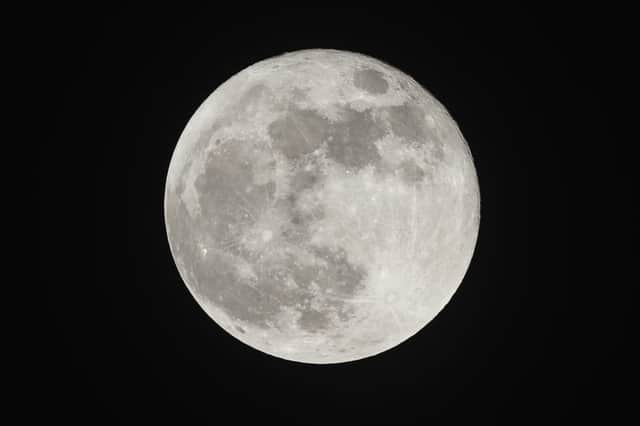The moon has a major impact on how well we sleep - according to new research


Our sleep schedules are still closely tied to the cycle of the moon, according to new research.
Researchers found that people go to bed later and get less sleep on the nights before a full moon, even in areas with significant light pollution.
Advertisement
Hide AdAdvertisement
Hide AdThe research looked at the sleep patterns of people living with varying degrees of access to electricity and internet, from rural indigenous communities in Argentina to college students in the US.
Their findings show that people’s sleep patterns correspond with the lunar cycle, and that, while previous studies have shown that people with electricity access tend to sleep less, the same patterns are still present.
How did the study work?
Researchers at Washington University analysed the sleeping pattern of three different groups of an Argentinian indigenous community, which each had a differing amount of access to electricity and technology.
They used wrist monitors to track the sleeping pattern of 98 people in the Argentine province of Formosa. They monitored the times the people went to sleep, and how long they slept for over a long period, and compared the data from these three groups with that of college students in Seattle.
Advertisement
Hide AdAdvertisement
Hide AdThe researchers found that the indigenous group with the most electricity access went to bed later, but that all three of the groups’ sleep patterns shifted in the same way through the month, relative to the lunar cycle.
The same sleep patterns were then identified in the college students.
Head researcher on the study, Professor Horacio de la Iglesia said: "We see a clear lunar modulation of sleep, with sleep decreasing and a later onset of sleep in the days preceding a full moon.
"And although the effect is more robust in communities without access to electricity, the effect is present in communities with electricity, including undergraduates at the University of Washington."